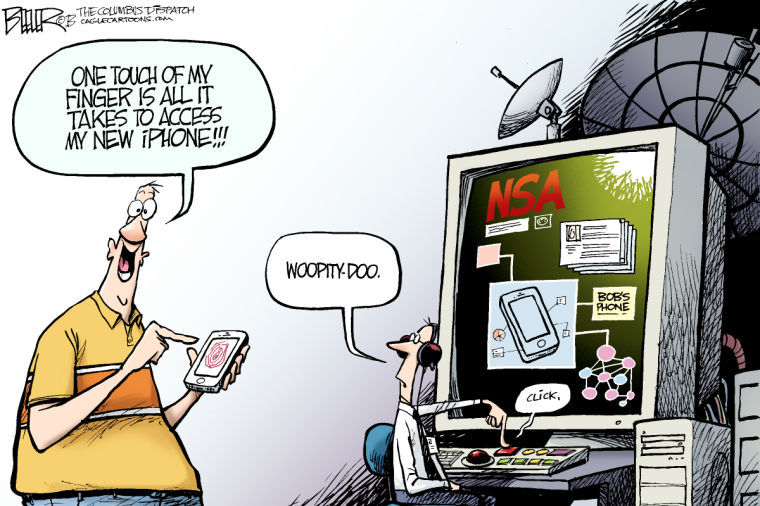Go away, NSA: My phone isn’t for your viewing pleasure
July 2, 2014
The Supreme Court made a decision last week that is both landmark and farsighted. Law enforcement officials still can’t search through an arrestee’s cell phone without a warrant. One can expect this decision to result in tighter reigns on the federal government’s biggest watchdog, the NSA.
According to the court’s decision, Chief Justice John G. Roberts Jr. declared that personal information, regardless of how it is carried, is as important to protect from unwarranted search as the letters in a person’s mailbox.
In small ways, it will affect the ability of law enforcement to combat crime, but there must be a due process that does not infringe upon basic privacy rights.
The introduction of new technology requires the introduction of new policies that apply to how law enforcement can handle private information contained on mobile devices.
Like it or not, devices such as smartphones, tablets and laptops play a central role in contemporary life, and the number of people who use smartphones is growing.
With this unrelenting growth in technology and the apps that are becoming a part of daily life, more and more personal information can be stored on such products and therefore can be used as evidence in criminal cases.
It is not incorrect to assume that if there’s nothing to hide, there’s nothing to fear, but privacy should be seen as a fundamental right of any man or woman, leading in to the pursuit of life, liberty and happiness.
Steven Shapiro, the legal director of the American Civil Liberties Union, correctly observed that “old values still apply and limit the government’s ability to rummage through the intimate details of our private lives.”
This columnist would add, as the Supreme Court did, “without a warrant.”
Let us be clear that this ruling should not paint our law enforcement in a bad light or result in the assumption that abuse of evidence on such devices is commonplace.
For many departments, including our local police force, this rule was self-imposed long before the Supreme Court made it law.
Many arrests and convictions these days, whether related to violence, theft, drugs or sexual assault, are aided by evidence found on phones, such as text messages, pictures and other information, said Detective Sgt. Dan Hargraves of the Pullman Police Department.
All this ruling does for the police is put into writing a policy they have already practiced for some time, he added.
If the Supreme Court has made such a ruling regarding how police handle personal information on cell phones, how does that reflect upon the ability of agencies like the NSA to “listen in”?
The NSA does not “listen in” the way conspirators commonly assume, but it does collect phone data en masse for future reference.
The NSA has been left largely to itself because it maintains, according to the agency itself, strict guidelines and procedures for its data collection, and at this point, the recent ruling does not affect that capacity.
However, what it should indicate to the NSA is that government agencies as the only wardens of the Fourth Amendment are not what our founding fathers had in mind. In the near future, it might have to answer for not abiding by our constitution.
Many see agencies like the NSA as a necessary evil – possibly more evil than necessary. But the fact remains that national security relies heavily on the surveillance they can provide.
Thankfully, we can have greater trust in our nation’s highest court acknowledging and acting upon the need for new privacy protections.
CORRECTION – July 2, 2014: The original version of this column incorrectly stated that law enforcement officials may search through an arrested individual’s cell phone without a warrant to do so. That information has been corrected.






















